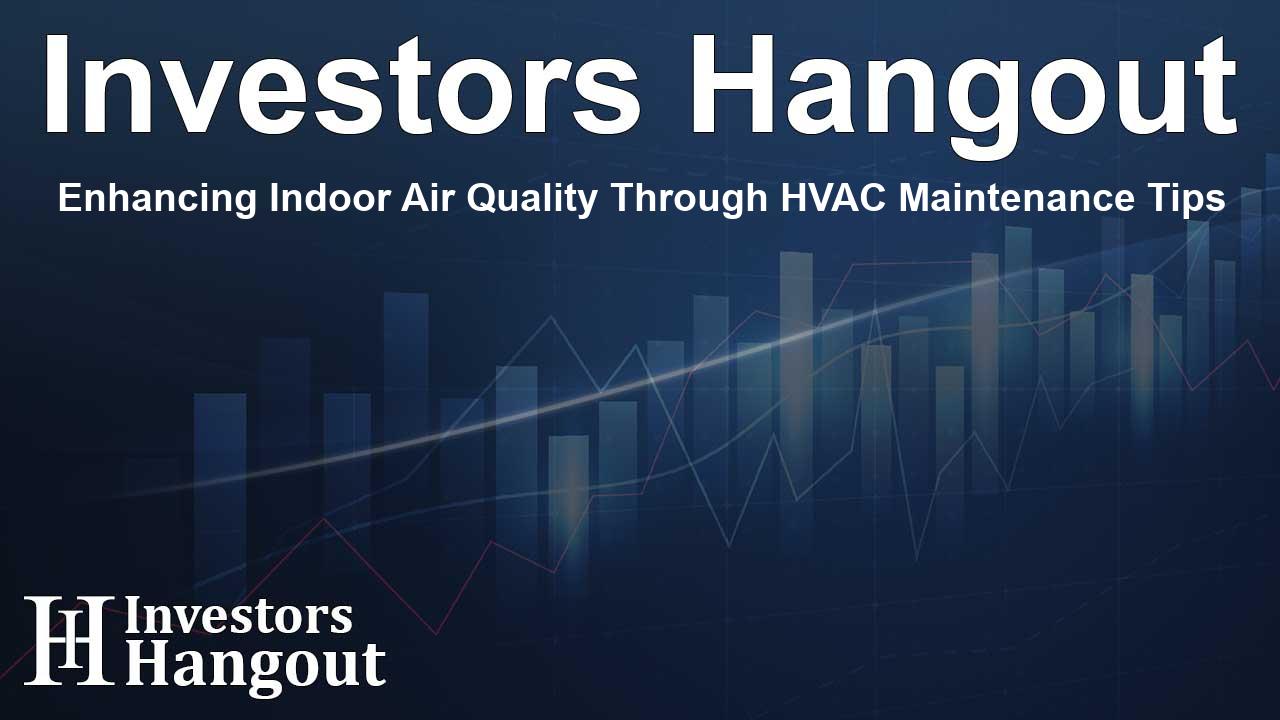Enhancing Indoor Air Quality Through HVAC Maintenance Tips

Enhancing Indoor Air Quality Through HVAC Maintenance Tips
As we transition into warmer seasons, maintaining a clean and healthy indoor environment becomes crucial for every homeowner. Quality Heating, Cooling, Plumbing & Electric emphasizes that effective HVAC maintenance is the key to achieving superior indoor air quality (IAQ). Taking proactive measures can help ensure a healthy living space for you and your loved ones.
The Importance of Indoor Air Quality
Indoor air quality is often overlooked, yet it plays a significant role in our overall health. Many people remain in closed homes during winter, and this can lead to stale indoor air filled with pollutants. According to experts, contaminants in the air can contribute to various health issues, including allergies and respiratory problems.
Why Keep HVAC Systems Maintained?
Heating, ventilation, and air conditioning systems should be regularly serviced to prevent them from becoming breeding grounds for allergens and toxins. Regular HVAC check-ups help in identifying issues early, ensuring that your home remains a sanctuary of cleanliness and comfort.
Key Maintenance Tips for Homeowners
Here are some essential maintenance tips recommended by industry professionals:
- Regular HVAC Check-Ups: Schedule annual check-ups for your HVAC system to keep it running efficiently and to catch any problems that could affect your air quality.
- Change Air Filters: Replacing air filters on a regular basis can significantly improve the quality of air circulating within your home.
- Consider Whole-Home Air Filtration: Whole-home filters can capture dirt, dust, and other allergens before they circulate through your home, providing relief for those with respiratory illnesses.
- Maintain Humidity Levels: Monitor indoor humidity to prevent mold growth. Keeping humidity between 30% to 60% is ideal.
- Professionally Clean Ducts: If your home is over 15 years old, consider having the ductwork professionally cleaned to remove dust and debris buildup.
- Use HEPA Equipment: Invest in high-efficiency particulate air (HEPA) vacuums and dusters that can trap fine particles and prevent them from re-entering the air.
Combatting Indoor Pollutants
Indoor air can host many pollutants, from dust mites to volatile organic compounds (VOCs). Thus, being proactive about air quality is essential. Regular cleaning, using the right equipment, and ensuring efficient air circulation are vital steps to combat indoor pollutants effectively.
Expert Recommendations on Indoor Air Quality
Experts suggest that homeowners not only focus on their HVAC system but also embrace an overall approach to cleanliness inside their homes. Additionally, installing alarms for carbon monoxide and radon can alert homeowners to dangerous gases that are colorless and odorless, ensuring that safety remains a priority.
Understanding the Deadly Risks
Understanding the risks associated with poor indoor air quality is essential. Homeowners must stay informed about both environmental conditions outside and indoor cleanliness. Annual maintenance of HVAC systems is just one of the many steps to take.
Commitment to Community and Customer Health
Quality Heating, Cooling, Plumbing & Electric is dedicated to ensuring that local residents experience the highest air quality standards possible. They are happy to provide assistance through various services to enhance the comfort and safety of your home environment.
Maintaining clean air within your home can lead to a healthier, happier family. Good air quality leads to improved wellbeing and an environment where problems can be tackled before they escalate.
Frequently Asked Questions
What is Indoor Air Quality (IAQ)?
Indoor Air Quality (IAQ) refers to the air quality within and around buildings and structures, which can affect the health and comfort of occupants.
Why is HVAC maintenance necessary?
Regular HVAC maintenance helps prevent issues, ensures efficiency, and maintains a healthy indoor environment by improving air quality and system performance.
How often should air filters be changed?
Air filters should typically be changed every 1-3 months, depending on usage and the type of filter being used to maintain optimal air quality.
What are the dangers of poor indoor air quality?
Poor indoor air quality can lead to health issues such as allergies, respiratory problems, and may exacerbate conditions like asthma.
What steps can I take to improve IAQ?
To improve IAQ, regularly maintain your HVAC system, change filters, control humidity, and consider using whole-home air filters and air purifiers.
About The Author
Contact Logan Wright privately here. Or send an email with ATTN: Logan Wright as the subject to contact@investorshangout.com.
About Investors Hangout
Investors Hangout is a leading online stock forum for financial discussion and learning, offering a wide range of free tools and resources. It draws in traders of all levels, who exchange market knowledge, investigate trading tactics, and keep an eye on industry developments in real time. Featuring financial articles, stock message boards, quotes, charts, company profiles, and live news updates. Through cooperative learning and a wealth of informational resources, it helps users from novices creating their first portfolios to experts honing their techniques. Join Investors Hangout today: https://investorshangout.com/
The content of this article is based on factual, publicly available information and does not represent legal, financial, or investment advice. Investors Hangout does not offer financial advice, and the author is not a licensed financial advisor. Consult a qualified advisor before making any financial or investment decisions based on this article. This article should not be considered advice to purchase, sell, or hold any securities or other investments. If any of the material provided here is inaccurate, please contact us for corrections.
